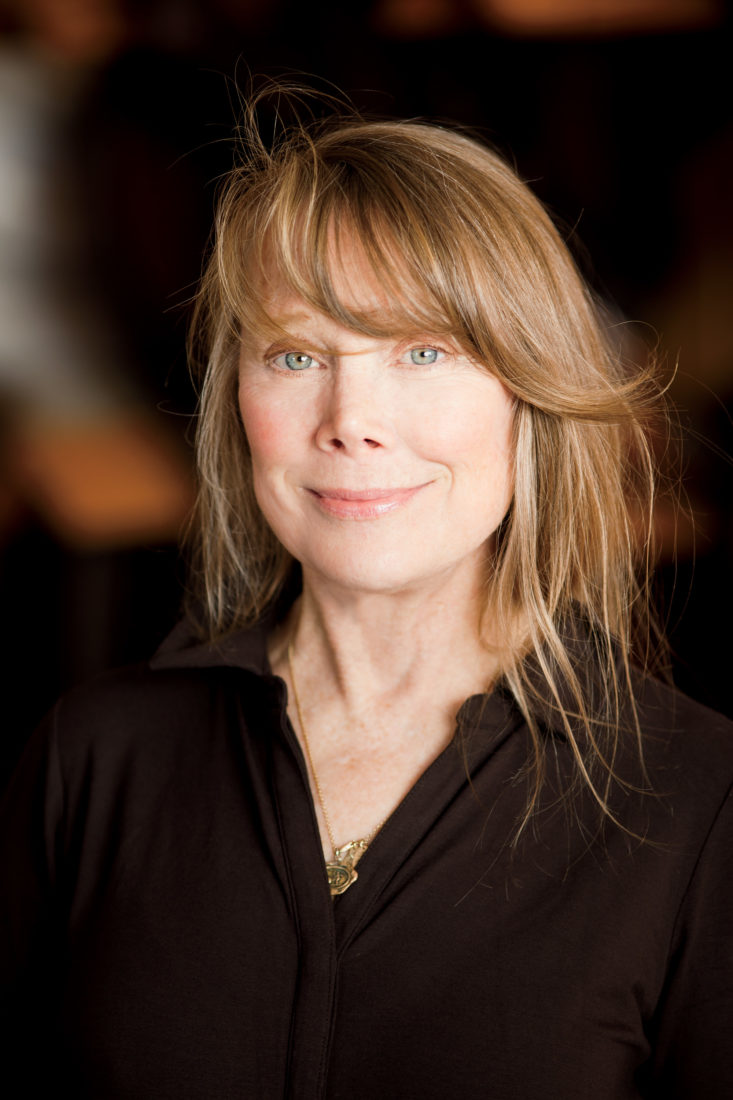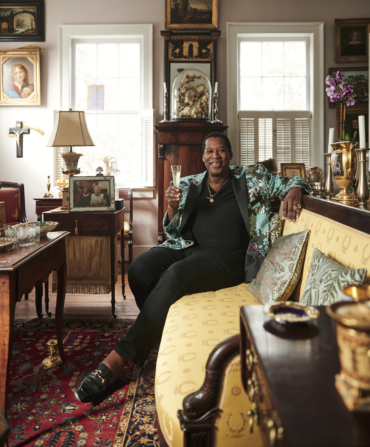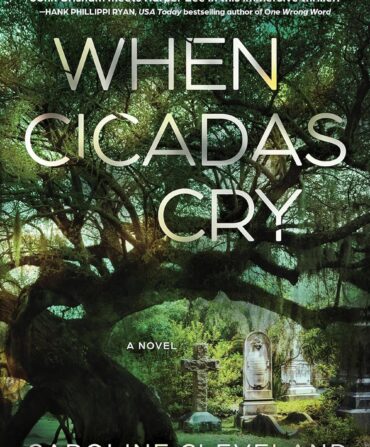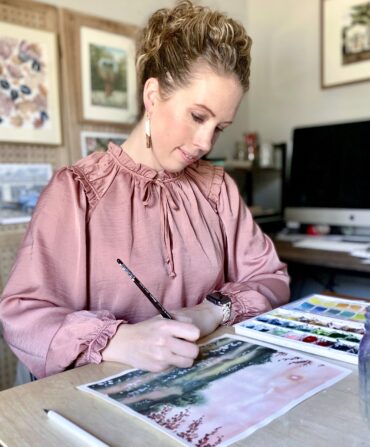In her new memoir, My Extraordinary Ordinary Life, the actress Sissy Spacek counts her blessings. It’s something she has done since her birth, sixty-two years ago, in Quitman, Texas. Humble despite prodigious talent, Spacek has always seemed less an Oscar-winning icon than the sort of woman who would walk your dogs if you had the flu. A mother of two grown girls with her husband and first love, Jack Fisk, Spacek rejects disposable glamour for genuine enthusiasm, and eschews Hollywood for farm life in Virginia, a place she calls her “refuge.”
Why a book now?
I wanted to get it all down before I forgot everything! [Laughs.] No one warned me how hard writing is. It almost killed me. But I’m so glad to have it for my kids. Though of course, they want to fact-check everything, make sure I’ve got it right. My family has been very patient about the whole process. They have jokes about it. Me padding around in my pajamas at all hours of the night. “What are you doing?” “I’m writing!” I’m telling you, this book made a woman out of me!
Oh, I doubt that.
[Laughs again.] Okay. But it did make me realize how fortunate I am. And it’s sobering. This is who I am. It’s like when you get a baby horse and he has all this promise—he could win the Kentucky Derby! Then the years go by and he becomes a regular old horse. Same with people. You become who you are and you realize, I’ll never be a ballerina or a great chef. We are, as my mother said, a product of our choices. The world would be better if we taught our children those types of things. Not how to wipe your mouth with a napkin so much as how to become someone worthwhile.
You proudly identify with your small-town Texas heritage and always have. Did people ever underestimate you because of your background?
They probably did. In the beginning, when I first arrived in New York City, of course, agents and managers would say, “Oh, honey,
with that accent get back on the plane to Texas!” But then, my Southernness gave me my biggest opportunities. [Badlands director] Terry Malick said I was just what he was looking for, and that was the best experience of my life. So it served me well in the end.
People have preconceived ideas
about the South.
They do. But there is so much great literature from here, such great art. There is a long tradition of pungent living in the South. It was wonderful to have that imprinted on me so early in life. I already had my core when I left my little town in Texas.
You have collections of trinkets and keepsakes. Why do you think Southerners hold on to things so tightly?
Because we all grew up reading To Kill a Mockingbird? I don’t know. I grew up without a lot of stuff. So little talismans like marbles, an old whistle, meant something to me. I walk around the house and I see the history and it reminds me. I think you’re right, it is uniquely Southern. The Danish sure aren’t like that. [Laughs.] They don’t like all that clattering.
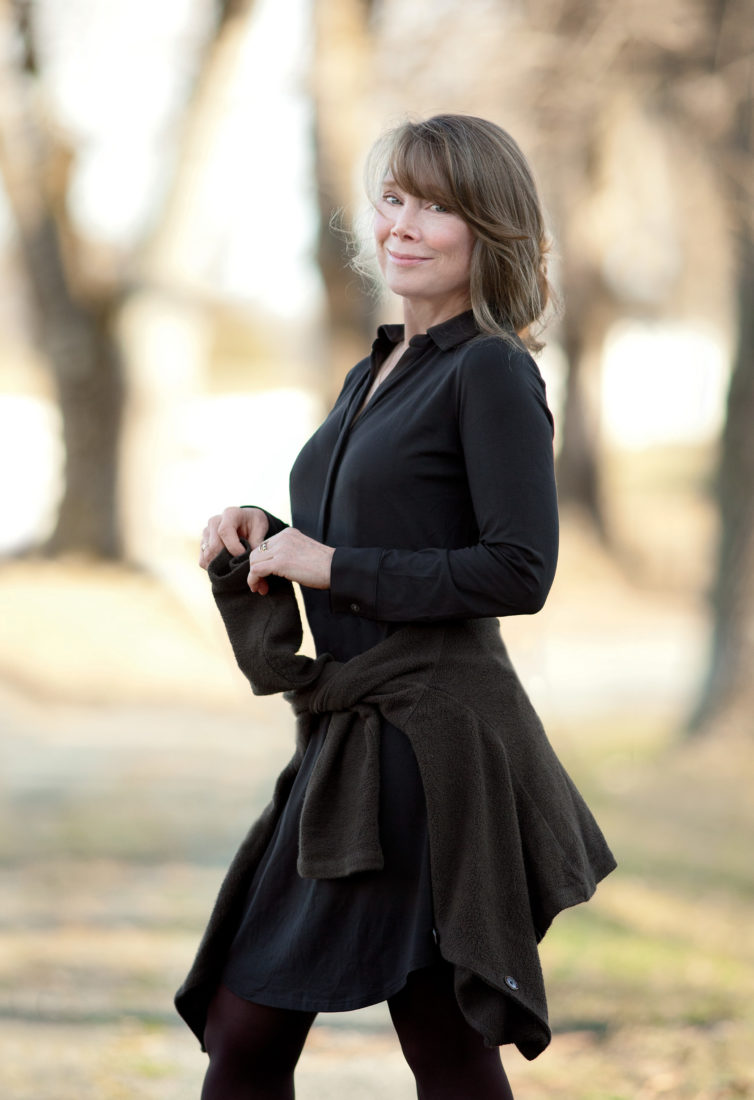
You wrote in your book that you learned if you did what was expected, you’d “miss out on the most wonderful things in life.” Do you see yourself as a risk taker?
In some regards. But I keep one foot on terra firma. That is what home is to me. When I lived in New York City, I loved it so much. But every six months I had to go home to Texas to remember who I was. Get filled back up. I have a little coffee cup that my daughter gave me that says, “What would you try to accomplish if you knew you could not fail?” My roots allow me to let go of the fear of failure.
You’re incredibly close to your daughters.
I always assumed I would have boys because I grew up with brothers. My children came along at a perfect time in my life. My career was soaring and they didn’t care who I thought I was. They just wanted to eat. It brought me down to earth.
You moved to your farm in part
because of them.
I wanted to give my children roots. Have them grow up with animals and dirt between their toes. In 1978 my husband and I got the farm as a place to get away for a month or so. Then in 1981, I got pregnant with Schuyler, and the stays got longer. I love cities. I do. But nature is my refuge. A bug hitting a screen on a summer night is music to me. The wind in the trees, the creek running full after a storm. All of those sounds are a choir that fills me up and calms me. It took me a long time to realize that.
You are a big gardener, too, right?
A fledgling gardener. When I first got to the farm I planted annuals. [Laughs.] You would think as the daughter of an agricultural consultant I would have known better. Now I have a serpentine English flower garden where I do most of my real work—tulips, columbines, things like that. The basics. One of our daughters is getting married soon on the farm. So I am busy putting in peonies and moving boxwoods. I like to say my garden is beautiful in spite of me.
Your mother said, “You are here to make the world a better place because you’ve lived.” Do you feel you’ve done that?
I think I fall short. But I try. My mother, life was simple for her. She seemed to understand what was important. Just hearing those kinds of things as a child kept me from being blinded by the outside world. I know there were times when I was just about to get into some kind of trouble, but I would hear her voice in my head.
And it stopped you?
Sometimes. When I took my girls to college, I was thinking I forgot to tell them this and that, but things we say to them stick. Some of them. We all face adversity, but it is not so much what happens to you in life, but how you respond to what happens. Staying king of the mountain isn’t important. It’s all that stuff our mothers taught us. I wonder if all our old values apply. I hope so.


